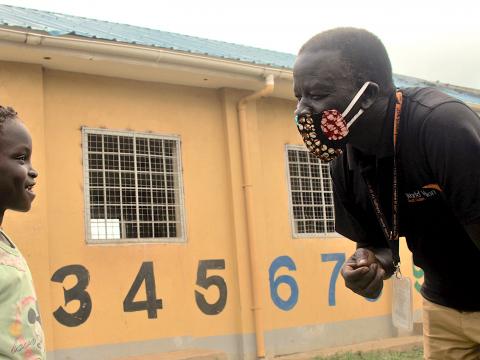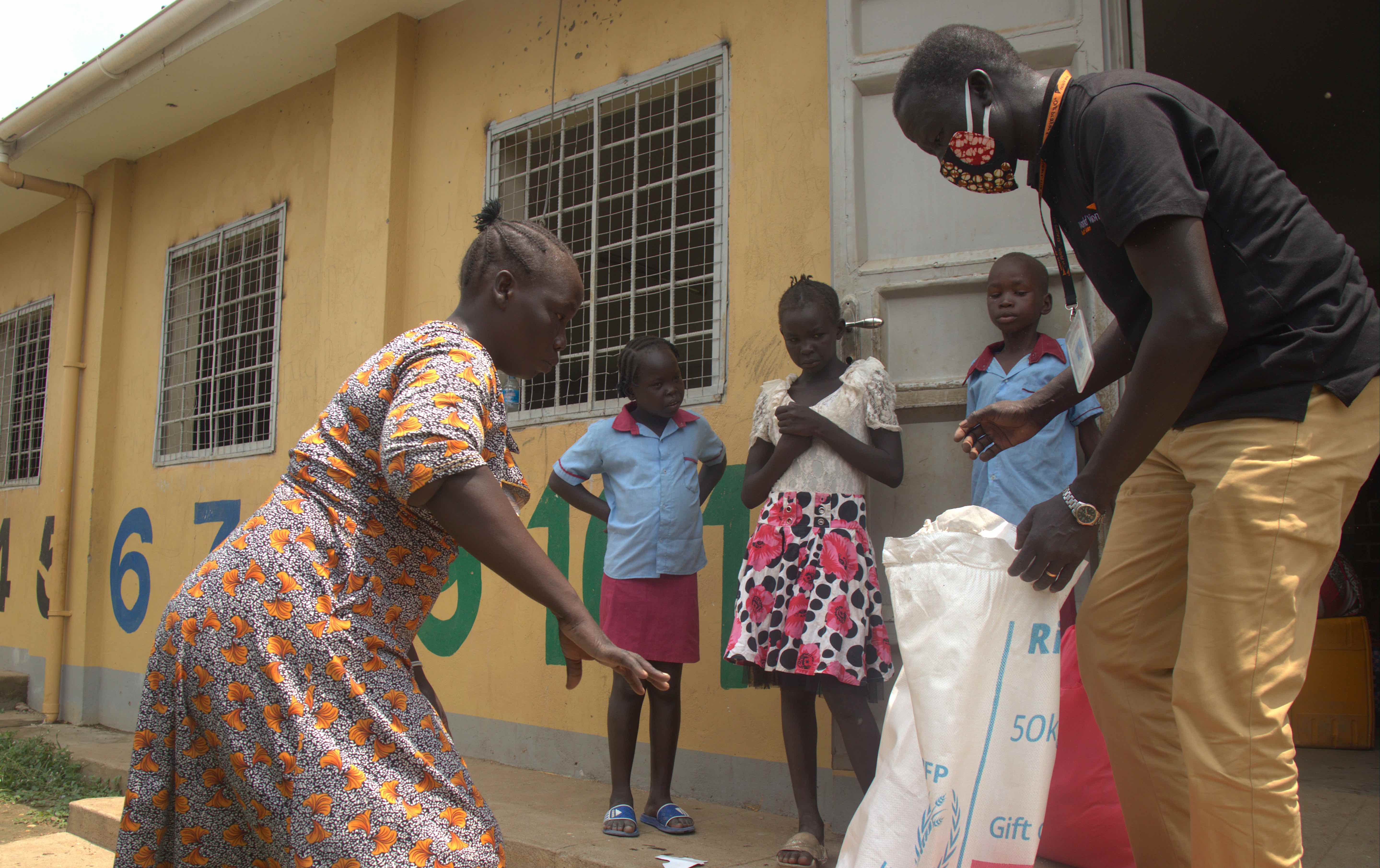A humanitarian’s plea: “We must unite to achieve peace, rebuild South Sudan and bring back our scattered families”

In December 2013, I was traveling back from Kenya to South Sudan to catch up on spending Christmas with my family in Malakal, Upper Nile State’s capital town. The airport in Juba closed unexpectedly and I got stuck for nine days. I eventually traveled but upon arrival In Malakal, the security situation was tense.
I took money from the bank as my wife Hellen went to the market to stock some food and supplies if the situation worsens. The staff in the bank started going home, too. On 24 December, the eve of Christmas, when the rest of the world was celebrating, fear engulfed the whole town. On Christmas Day, we heard gunshots. I told my wife to stay under the bed with our 5-months old baby.
My late sister took one of the children and I got the other two. I thought we should not die altogether so we need to separate as explosions scraped our roof and cupboards. I sent text messages to my wife in the other room to check if they were fine. Fortunately, nobody among us got injured by all the shelling. That was one of the toughest times for us as a family. I am thankful to God we survived it.
Watch Video: Serving Others with Love and Courage

When I got out to explore the situation, I saw people fleeing. I learned they just want to stay away from the nearby military barracks, also near our house. I then decided to move my family to my brother’s house which was at least 600m away. We stayed there for four days until government forces came to secure the area.
I continue to appeal to my fellow South Sudanese to forget our differences and live together as brothers and sisters. We need to work together for peace so we can bring back home our scattered families, our children and the mothers. We need peace to rebuild our beautiful country, restore our schools, hospitals, water systems, our roads.
My nephew called to warn me in January 2014 that we need to leave quickly for our safety as rumors of another violence circulated. Packing our important belongings, we joined the multitude of people leaving town, some even braved crossing the crocodile-infested Nile River while some went to the United Nations Mission in South Sudan (UNMISS) compound.
I went to check the situation in World Vision’s Malakal office conferring with the security officer Edward Mutibwa who was new in the job while my wife explored going to Renk county. We drove the vehicle and sent off my family led by my wife who rode the truck to Renk, along with another pregnant relative and family members.
Related World Humanitarian Day Story: Growing up in the conflict zone

I surrendered everything to God because I feared I will not see my family again. With mobile phone lines cut off, there was no means of communication. After three days I was relieved they had arrived safely in Renk and proceeded to Khartoum, Sudan which is just in the town’s border.
We proceeded to the UNMISS compound full of humanitarians who sought safety. The following day we checked all the staff and fortunately, everyone was safe. Together with other staff, we secured three more vehicles and four motorbikes, all the computers. our communications equipment, tents, and a new boat engine. The response team was set-up the following week led by Rich Moseanko.
World Vision started distribution of food and other essentials supporting an estimated 70,000 people in the Protection of Civilians (POC) site, those who hid in the churches and in nearby villages. We were able to secure more assets like the two-speed boats valuable to our operations. We began assisting internally-displaced people in Malakal town, Wau Shilluk, Rom, Melut, and Kodok.
Related World Humanitarian Day Story: A heart for the fellow South Sudanese women

Melut and Kodok became an additional operational base. While I was busy at work, people started looting our house, including my car. I watched helplessly telling myself I cannot lose my life protecting them.
By the end of February 2014, when a UN flight was available, I traveled for two days to visit my family in Khartoum and enrolled my children in school. I went back to work thereafter. Today, I moved to Juba as Project Officer of the Juba Urban Project serving my country through World Vision for 10 years now.
Today, World Vision’s presence in Malakal stands strong. I consider it is a great blessing that we stayed, or else many staff and families would lose important support in our lives, and thousands of displaced people will not be assisted. This support is more valuable than our houses and properties.
When then World Vision President Kevin Jenkins visited the Malakal Protection of Civilians (POC) site, I proudly translated for him.
I have four children studying in primary school. I would have wanted a bigger family but I have to consider our economic condition and the state of our country. They spent three months sleeping on the floor because we cannot afford to buy them beds when we settled in Sudan.
Related World Humanitarian Day Story: My strength comes from helping South Sudanese mothers and children

They still have to stay in Khartoum to have better education and for their safety. The impact of the conflict on them – the experience of explosions in Malakal – is still felt until today.
One time they were playing outside our house in Khartoum when they heard gunshots. They ran to the rooms and hid under the bed, not wanting to come out. It took me a long time to convince them everything was fine.
My children continue to ask when they can go home. They miss South Sudan, their own country. I bought them a TV set hoping it would help them forget what they went through.
I continue to appeal to my fellow South Sudanese to forget our differences and live together as brothers and sisters. We need to work together for peace so we can bring back home our scattered families, our children and the mothers. We need peace to rebuild our beautiful country, restore our schools, hospitals, water systems, our roads.
Let us listen to our children’s cry for peace.
Watch Video: South Sudan's Cry for Peace
Blog by Philip Ronyo, World Vision's Cash Transfer Officer for Juba Urban Project and has been working with the organization for 10 years. Photos by Scovia Faida Charles Duku, Communications Coordinator